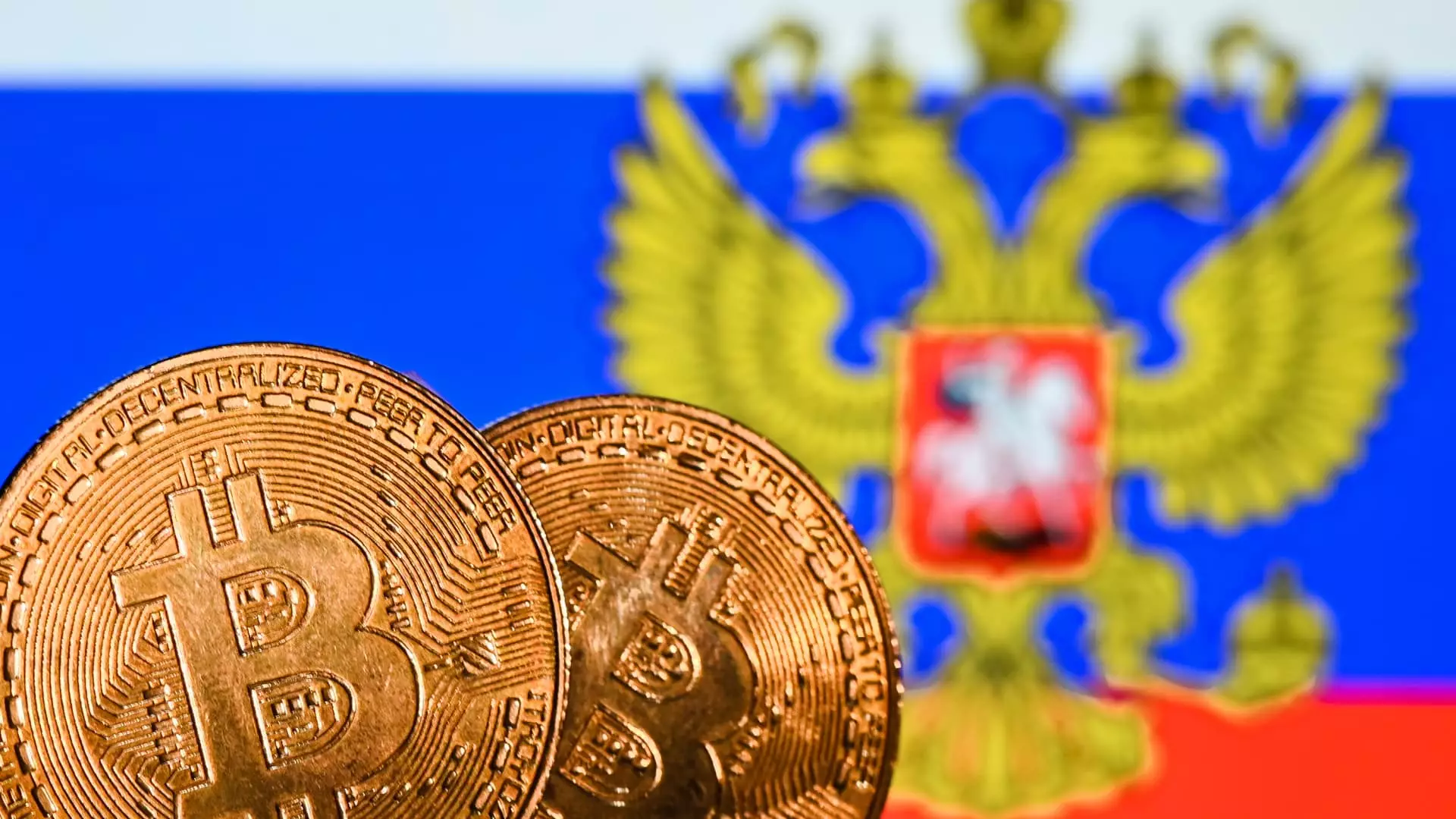Russia is currently exploring the idea of legalizing the use of cryptocurrency for international payments, as a response to the financial pressure imposed by Western sanctions. The State Duma, which is the lower house of the Russian Parliament, is set to consider a law that would allow for international payments to be made using cryptocurrencies. This move comes as a significant shift in the country’s approach to cryptocurrency and could have far-reaching implications for global finance.
The governor of Russia’s central bank, Elvira Nabiullina, announced the potential legalization of cryptocurrency payments during a session at the Russian Federation Council. This shift in policy represents a departure from the central bank’s previous stance on cryptocurrency, where they had proposed a ban on the use of crypto for transactions and mining. The central bank is now looking to experiment with crypto-based payments before the end of 2024, indicating a rapid change in approach.
The decision to legalize cryptocurrency for international payments comes at a time of escalating tensions between Russia and the U.S. and its allies, resulting in severe sanctions on various Russian entities. These sanctions have targeted key individuals, the country’s financial sector, and influential oligarchs. By legalizing cryptocurrency payments, Russia may be seeking to circumvent these financial restrictions and find alternate channels for conducting international transactions.
In addition to exploring the use of cryptocurrency, Russia is also considering the implementation of a digital version of the ruble. Central bank digital currencies (CBDCs) differ from cryptocurrencies like bitcoin, as they are issued directly by a government and are designed to mimic traditional fiat currencies in digital form. Governor Nabiullina has indicated that Russia aims to transition from a pilot phase to mass implementation of the digital ruble by July 2025, further signaling the country’s commitment to digital finance.
The move to legalize cryptocurrency for international payments is part of a broader trend among sanctioned countries seeking to evade financial restrictions. North Korea, for example, has been accused of using cryptocurrencies to raise funds for state programs and bypass foreign sanctions. The recent hack on the Ronin Network, allegedly carried out by a North Korean state-backed hacking group, highlights the potential risks associated with the illicit use of cryptocurrencies by sanctioned entities.
While there are concerns about the misuse of cryptocurrencies for illicit activities, proponents argue that digital assets offer benefits in countering such behavior. The transparent nature of blockchain technology, which underpins cryptocurrencies, allows for a secure and immutable record of transactions that can be monitored and audited. This transparency could potentially help in tracking and preventing illicit activities, providing a compelling case for the adoption of cryptocurrencies in international finance.
Russia’s potential legalization of cryptocurrency for international payments marks a significant development in the global financial landscape. The move reflects the country’s efforts to adapt to the changing dynamics of international trade and finance, amidst mounting pressures from Western sanctions. The implications of this decision extend beyond Russia, influencing the broader adoption and regulation of cryptocurrencies in the international arena. It remains to be seen how other countries and financial institutions will respond to this shift and what impact it will have on the future of digital finance.


Leave a Reply